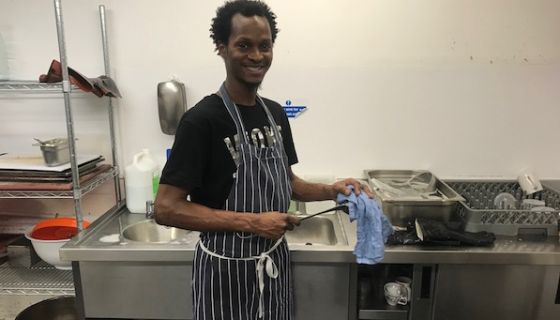The latest news in the hospitality media may seem somewhat unusual but in fact it is not all that surprising. Broadmoor Hospital, the mental institution once home to Peter Sutcliffe, aka The Yorkshire Ripper, and the Moors Murderer Ian Brady, is to be offered to a number of luxury hotel brands for redevelopment.
It might find a taker. Hotels are one of the few uses that such a Victorian building can be put to, as is the case of the Bow Street Police Station opposite the Royal Opera House in Covent Garden, a building that is in the process of being converted into a Nomad hotel, with Kate Levin, daughter of the founder of the Capital Hotel in Knightsbridge, as its general manager. The Old War Office down on Whitehall will follow suit in a couple of years, becoming a Raffles Hotel, the Singapore landmark’s first venture into London.
Rosewood Hotels will open their second hotel in the former US Embassy in Grosvenor Square, and Mandarin Oriental will open their second, too, with a string of apartments, overlooking Hanover Square. The first Peninsula Hotel in London is busy being built to overlook Hyde Park Corner from 2021 while the Nobu hotel, complete with an enormous ballroom, is being rebuilt from the shell of a former hotel overlooking Portman Square. These, and many others – the Evening Standard reported recently that there were just under 200 hotels being developed in London – are in various states of construction or renovation. The surge in competition, already underway from so many hotels, plus of course the presence of Airbnb, has however forced hoteliers recently to lower their prices just as they face rising costs. In 2019, around 15,500 hotel rooms were added to the London hospitality market with a further 19,300 expected in 2020.
As London, and increasingly the rest of the UK, becomes a ‘pleasure island', my thoughts are twofold. The first is that the country is fast becoming just as the author Julian Barnes predicted it would be in his 1998 novel England, England in which a rich entrepreneur transforms the Isle of Wight into a thriving theme park that houses the best of what was once England.
The second, and more relevant to this website, is probably the biggest elephant in the hospitality room at present: who will staff these places?
The hospitality sector has undoubtedly been badly hit by Britain’s decision to leave the EU. At Heathrow recently I bumped into David Loewi, the MD of D&D restaurants, best known for their concentration on large bars and restaurants. (This was once known as the Conran group.) When I asked him about how he felt about the coming new year, his response was illuminating: ‘With 70% of our staff coming from the EU, I have to say that we can only be quite sanguine for the time being.’
The coming year may be uneventful, until the final break from the EU happens. And England, and in particular London, will then not lose its charms and attractions entirely.
It will, almost certainly, remain a monarchy surrounded by republics, whatever the machinations of the Royal Family towards self-destruction. It should still continue to offer the broadest selection of wines to attract anybody interested in wine service, certainly far wider than the wine lists of Paris, Berlin, Milan or Madrid can offer. And its kitchens will continue to offer what I believe is the most exciting and wide selection of food anywhere in the world.
All this will be offered, of course, at prices that will make any visitor’s wallet last longer. The pound currently trades at 1.16 to the euro and 1.29 to the US dollar. These rates build in the high generated by the decisive result of the recent general election. My prediction is that they will be much lower by the end of this year.
That has to be the driving force for the investors in these hotels, and the restaurants that are now part and parcel of each of them. However simple a hotelier’s dreams of the hospitality aspect of his, or her, new hotel – something that just serves breakfast, with or without room service perhaps? – they invariably get carried away. And where will all the necessary foot soldiers come from for these hotels and their restaurants such as Abdoul Mazid Diallo, the Quality Chop House's plongeur, pictured above by Gus Gluck?
The UK’s track record in training our own has been spectacularly unsuccessful. The internet lists 10 institutions in the UK offering courses in hotel management, with the 40-room Edge Hotel School attached to the University of Essex being perhaps the most lifelike in what it offers. There are numerous catering colleges but here it is probably the lure of the TV food programmes that attracts most youngsters to a life behind the stoves. I recall a recent conversation with a young chef. ‘Ten years ago I would have dreamt of becoming a DJ', he explained. ‘But today, I dream of becoming a top chef.’
Kitchens in restaurants and hotels are, however, strictly pyramid-like in their organisational structure. For every top head chef there are at least 10, or more, underneath him or her, all doing their fair share of the hard work, from peeling the vegetables to doing the washing up. These are roles that have to be filled and have until now been filled from all over the globe: from Poland in my days as a restaurateur; then from Portugal; from West Africa; and, most recently, from Eastern Europe in general. These are roles that need filling, regardless of gender, nationality or colour of skin. These are jobs that have by and large been taken by immigrants, temporary or permanent, and not all of them by those living in this country completely legally.
But as we turn our backs on Europe, our Home Office displays an unfriendly attitude to immigrants in general, and our currency loses value, who will there be to fill these roles? Not the bankers nor the venture capitalists who are backing the hoteliers or the restaurateurs. Nor, I imagine, the likes of Neil Rankin of Temper restaurant, who has just joined forces with Handley Amos of Benugo to found the Pepper Collective, which will back restaurants to be opened by chefs Tom Brown, Alyn Williams, Jasmine Hemsley and Gizzi Erskine inter alia.
These will all create hundreds, perhaps thousands, of non-skilled, or at best semi-skilled, jobs in kitchens, restaurants and hotels. Who will fill them? It is time the UK hospitality industry woke up and found solutions to this question. It is long overdue.














